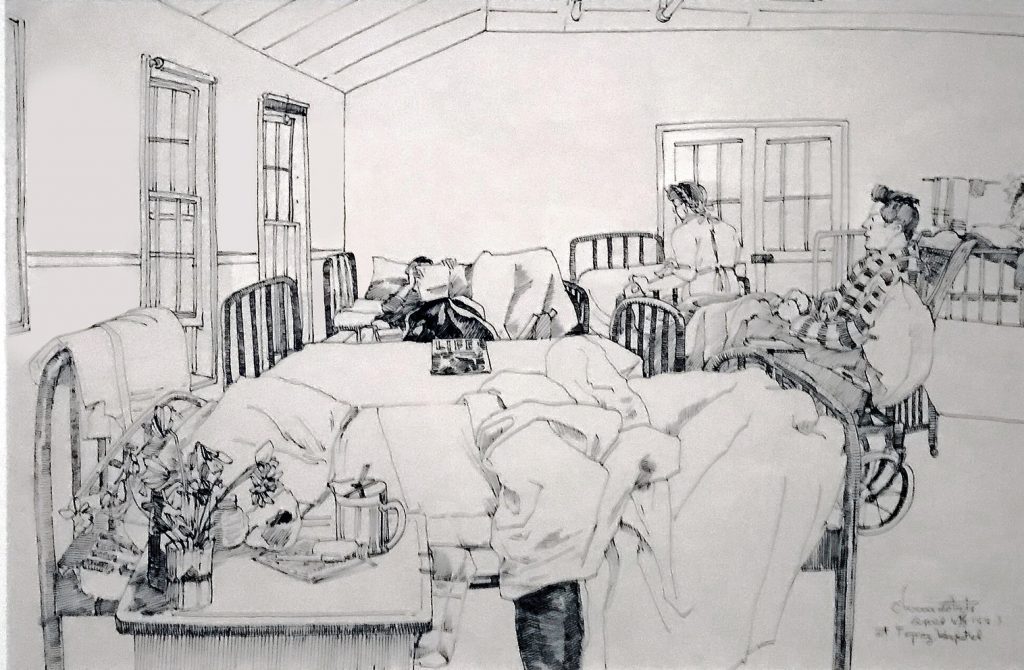Canada’s assisted dying program, known as MAiD (Medical Assistance in Dying), has become an object of international attention in the past few months. Last fall, dozens of stories came out about patients who applied for MAiD not because of sickness, but because of poverty. Disability activists have warned for years about the dangers of making death accessible while social services remain inaccessible. They were largely ignored. But now, this criticism is finding an echo among healthcare professionals and activists, as well as within the broader population.
The MAiD program was enacted in 2016 when the Supreme Court of Canada ruled that it was unconstitutional to deny assisted suicide to persons with a foreseeable cause of death. This measure was welcomed by a large majority of Canadians, who saw it as giving greater autonomy to people facing the end of life and allowing for a compassionate option. But in 2021, the bill was controversially amended to drop several safeguards on access to MAiD, allowing for those whose deaths are “not naturally foreseeable,” qualifying everyone with “a serious illness, disease, or disability” to access MAiD with a separate set of requirements.
Canada’s image in the U.S., particularly among liberals, is of a country that is like America but with something like a welfare state. Unfortunately, this image is sharply divorced from the reality: social reforms earned in the past have been clawed back and gutted through decades of economic crisis combined with austerity, privatizations, and counter-reforms from neoliberal governments. Canada ranks lower on spending and service than most OECD countries and scores even lower than the U.S. on social spending. This austerity inevitably impacts the marginalized the most, One of the groups most victimized by austerity and privatization has been the disabled population.
Conditions for the disabled population in Canada are nightmarish: over 40 percent of disabled people live below the poverty line, and there is no province in Canada where disability pays above it. In the most populous province of the country, Ontario, disability is $1,228 CAD per month, while rent in Toronto averages at $2,500 CAD per month. Disabled people are also overwhelmingly represented in unemployment statistics, with 36 percent of those with a “long term condition or disability” reporting unemployment in the immediate aftermath of the pandemic. Disabled people were even cruelly denied from accessing the CERB program, which paid $2,000 a month — nearly twice what disabled people earn on assistance programs. As author Nora Loreto wrote:
Over the course of the pandemic, expanded MAiD was the most significant change in federal healthcare policy. There have been no permanent significant social supports established for disabled people, guaranteed income projects, financial supports or rent controls, or creation of new financing programs for assistive devices. Instead, the government has said: We will make it easier for you to choose to die, but we won’t give you what you need to have a fulfilling life.
Many stories have come out about people seeking MAiD who would have continued living if not for the circumstances poverty had created in their lives. A woman in Winnipeg received assisted suicide because, as her conditioned worsened, she could not afford the increasing costs of at-home care and the public system was no longer able to support her needs. She wrote to her loved ones in her obituary, “Ultimately it was not a genetic disease that took me out, it was a system.” Two women in Ontario, both with Multiple Chemical Sensitivities (MCS), a condition in which one or several common chemicals create a severe, debilitating reaction, applied for MAiD after both fighting and failing to find accessible housing. One woman, Denise, said to the media that she applied to MAiD “because of abject poverty” while living on disability payments as well as her inability to gain accessible housing after seven years of applying. The other woman, Sophia, said in a video eight days before receiving MAiD that “the government sees me as expendable trash, a complainer, useless and a pain in the ass” after two years of attempting to access smoke- and chemical-free housing.
MCS as a condition is largely manageable; both women said that when they were not exposed to the triggering chemicals in their daily lives, they could function and live happy, healthy lives. They also would likely not have applied to MAiD if not for poverty and lack of access to the support systems they need. Rather than increasing the freedom and dignity of patients, MAiD has exposed the deep fault lines within Canadian social infrastructure. The system in place for these vulnerable patients is so inaccessible and underfunded that death becomes the preferable — and easier — choice. Effectively, MAiD has replaced access to public systems for the most “burdensome” patients. Critics say that the ambiguity and permissiveness of MAiD laws are encouraging this situation. Trudo Lemmens, a professor of health law and policy at the University of Toronto, argues that Canada’s laws have become the “most permissive in the world:”
In the context of medical assistance in dying, we’re getting rid of this idea that we will first try the least interventionist measures. There is no jurisdiction in the world other than Canada that frames this as just a medical intervention.
This framework has led to several disturbing cases, such as Roger Foley, a man with Degenerative Brain Disorder who was hospitalized in London, Ontario. He became so alarmed at how frequently he was being asked about euthanasia, he began recording the conversations. In one of these conversations, the hospital’s director of ethics mentioned while “discussing” MAiD with him that continuing his care to live would cost the hospital “north of $1,500 a day.” Defenders of MAiD will defend that the lack of regulations give autonomy to patients when, in reality, they only offer the choice of death while accepting that the choice to live is denied. As Lemmens stated in the same interview, “We’re basically sending the message that persons with disabilities who are not dying have an understandable reason to end their life. And this is discriminatory.”
In a concession to rapidly growing pressure from psychiatric and medical experts, the Canadian federal government delayed the expansion of MAiD to include those suffering from psychiatric illnesses until 2024. While it is a good thing that disability activists and experts were listened to, there is no amount of legal or ethical tinkering with legislation that can do away with the systemic discrimination against disabled and poor people built into the capitalist system. As the current crisis of social services across the whole of North America shows, without the proper resources needed to function, having a “right” to healthcare or welfare is just words on paper: the extra costs needed to accommodate the sick, poor, disabled, and marginalized groups through social spending are expendable. When a crisis hits and profits are threatened, these are the first costs to be cut. It is easier — and cheaper — for the capitalists to administer the right to death, framing it as “dignified dying” and “compassionate,” than providing funding for the right to live.
As socialists, we are not opposed to assisted suicide, which in the majority of cases is a dignified alternative to prolonged suffering. But as long as disabled people are denied the means to a dignified life where their needs are met by society, assisted suicide programs will inevitably be coercive and discriminatory. The only way to ensure that the right to death does not come at the expense of the right to life is through a universal, accessible, fully-funded healthcare system under the democratic control of the working class and inclusive of everything from disability to psychiatric illness. But the crisis of the capitalist system has shown the inability of this system to provide for the needs of society, pushing these services to the brink of destruction — it is only through the socialist reconstruction of society that the resources of the whole economy can be mobilized to meet the needs of all, rather than the private riches of a few wealthy capitalists.










